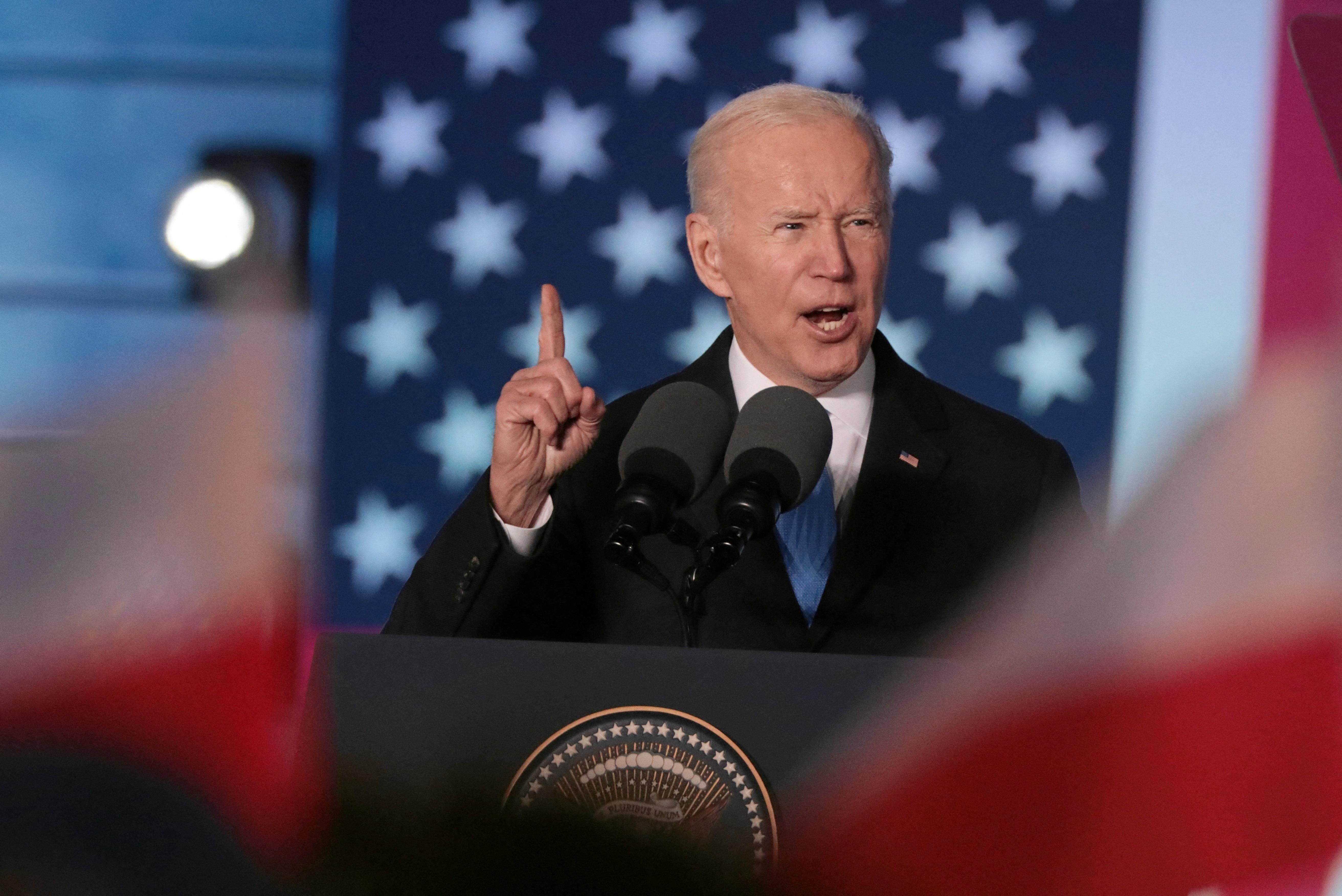What We’re Watching: Biden "gaffe" fallout, Russia changes war plan, Pakistani political turmoil
Does Biden have a red line?
In a fiery speech in Warsaw on Saturday, US President Joe Biden framed Russia’s invasion of Ukraine as a battle between authoritarian brutality and the free world. “For God’s sake, this man cannot remain in power,” Biden said at the very end, reportedly going off-script — a comment the White House would later walk back as Biden simply meaning that Russian President Vladimir Putin cannot continue to strong-arm Russia’s neighbors. But the confrontational phrase speaks for itself, and it’s hard to imagine Biden didn’t mean it at some level. He also notably called the Russian president a war criminal. For Putin, Biden’s words likely spell out what he’s been warning about for years: that America seeks regime change in Moscow. US allies, meanwhile, were quick to distance themselves from the remark, which some may fear could escalate tensions or trigger direct confrontation with Russia.
With regard to Putin possibly using chemical weapons, has Biden drawn a red line that will require a response should Putin cross it? Perhaps, but that’s precisely what Barack Obama told Syria’s Bashar al-Assad … and then didn’t follow through. A new Ipsos poll shows that 62% of Americans are opposed to risking a direct military confrontation with Russia by giving Ukraine all the support it wants (only 17% are in favor of doing so). What’s more, Biden campaigned on ending America’s “forever wars” abroad, which is why he took heat for the chaotic US withdrawal from Afghanistan. Getting into another foreign entanglement, with nuclear-armed Russia no less, would be a major departure from that — and a politically risky move in an election year.
Russia shifts military strategy in Ukraine
Meanwhile, Russia announced on Saturday that in the next phase of the war it will focus on fully “liberating” the Donbas region in eastern Ukraine, about a third of which has been controlled by pro-Russian separatists since 2014. This could indicate that since full occupation of Ukraine and regime change in Kyiv is proving harder than Vladimir Putin thought, annexing the Donbas is something he can accomplish and spin as a victory at home. (The separatist leader of Luhansk said Sunday he wants to hold a referendum on joining Russia.) On the one hand, gobbling up the entire Donbas would be a major win for Putin, whom Ukrainians fear ultimately wants to split the country in two. On the other, it’s unlikely Western sanctions will be lifted as long as Russian forces remain in Ukraine, and the Ukrainians are likely to continue fighting to the last man. Still, both sides are expected to resume bilateral peace talks in Turkey on Tuesday.
